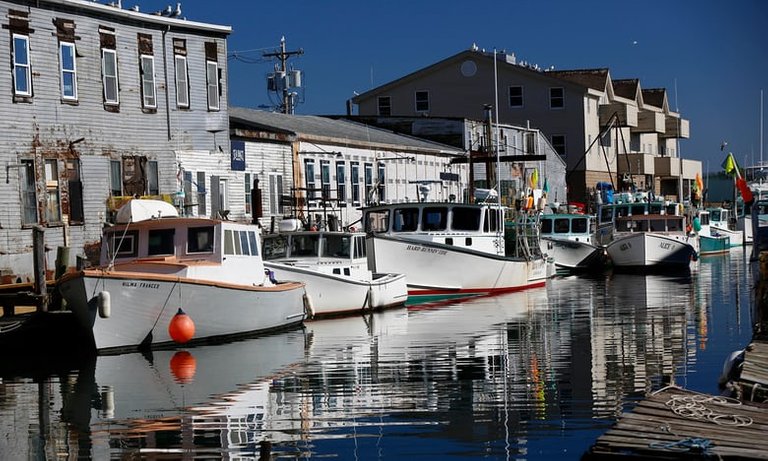Portland suffered its ‘Great Fire’ in 1866, claimed by many to be the largest urban conflagration sustained in the still-young nation. It destroyed most of the downtown, including nearly 2,000 structures, and displaced 10,0000 residents, even though only two people were reported killed in the blaze.
Reconstruction rapidly followed the removal of much debris, including a great volume of the ruined brick masonry. Debris by the thousands of cartloads was drawn downhill to the waterfront along the shore of the peninsula on which the city had been founded. Much of this debris in the immediate downtown was wasted within the arc of a new rail line in the harbour. The disposal filled much of the lagoon created between the rail line (founded largely on timber pilings just off shore) and the original edge of the harbour, in water that had become too shallow to serve many of the ocean-going vessels of the day.
This new rail line connected the two principle railway systems converging on and serving the busy harbour of Portland. This connection carried traffic until the 1980s when the rail line was taken up, the occasional train progressing slowly down the middle of the street coming to be considered as impediment to economic redevelopment of the by then largely somnolent, but just reawakening, waterfront.

Hi! I am a robot. I just upvoted you! I found similar content that readers might be interested in:
https://www.theguardian.com/cities/2016/may/27/the-story-of-cities-the-tales-we-missed
Congratulations @almedinh! You have completed some achievement on Steemit and have been rewarded with new badge(s) :
Click on any badge to view your own Board of Honor on SteemitBoard.
For more information about SteemitBoard, click here
If you no longer want to receive notifications, reply to this comment with the word
STOP